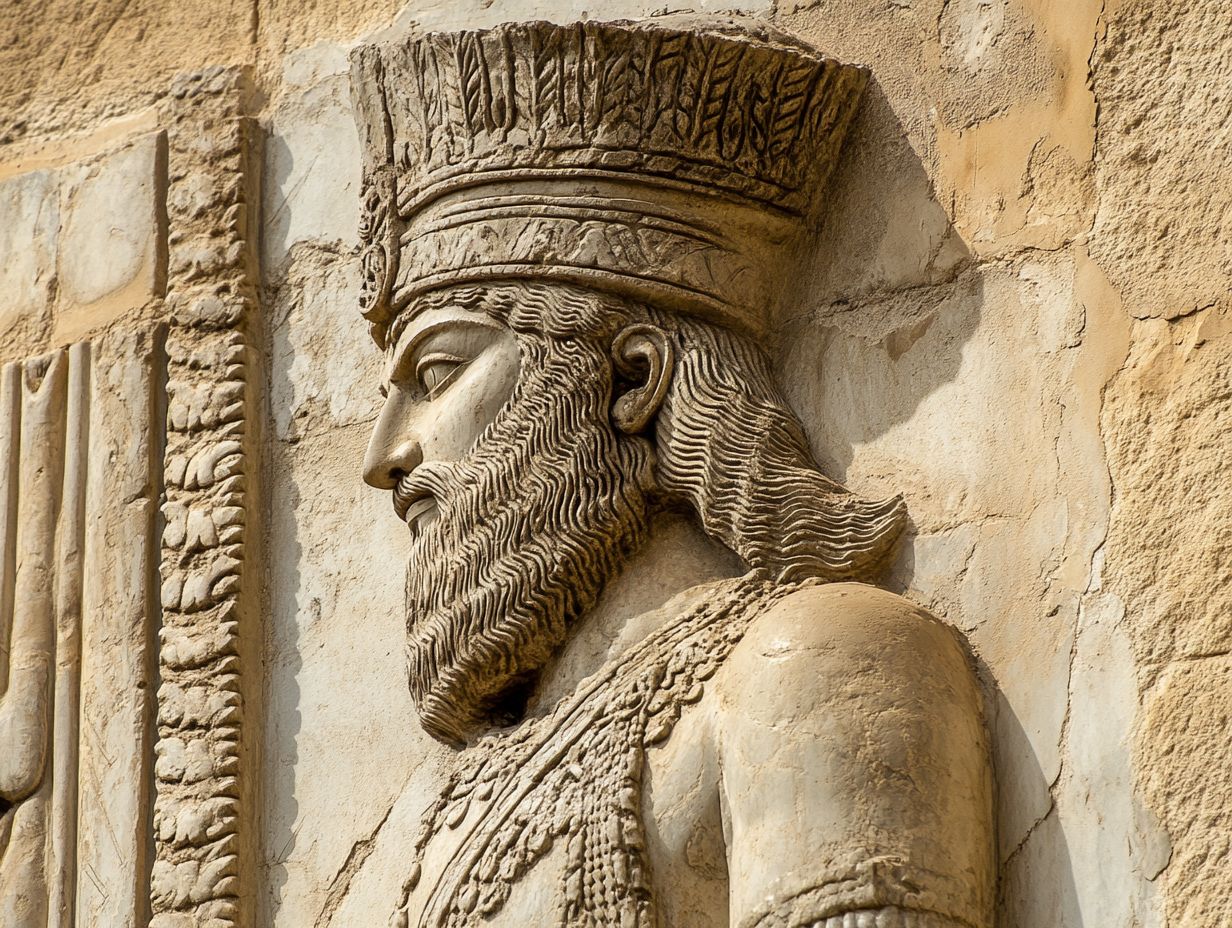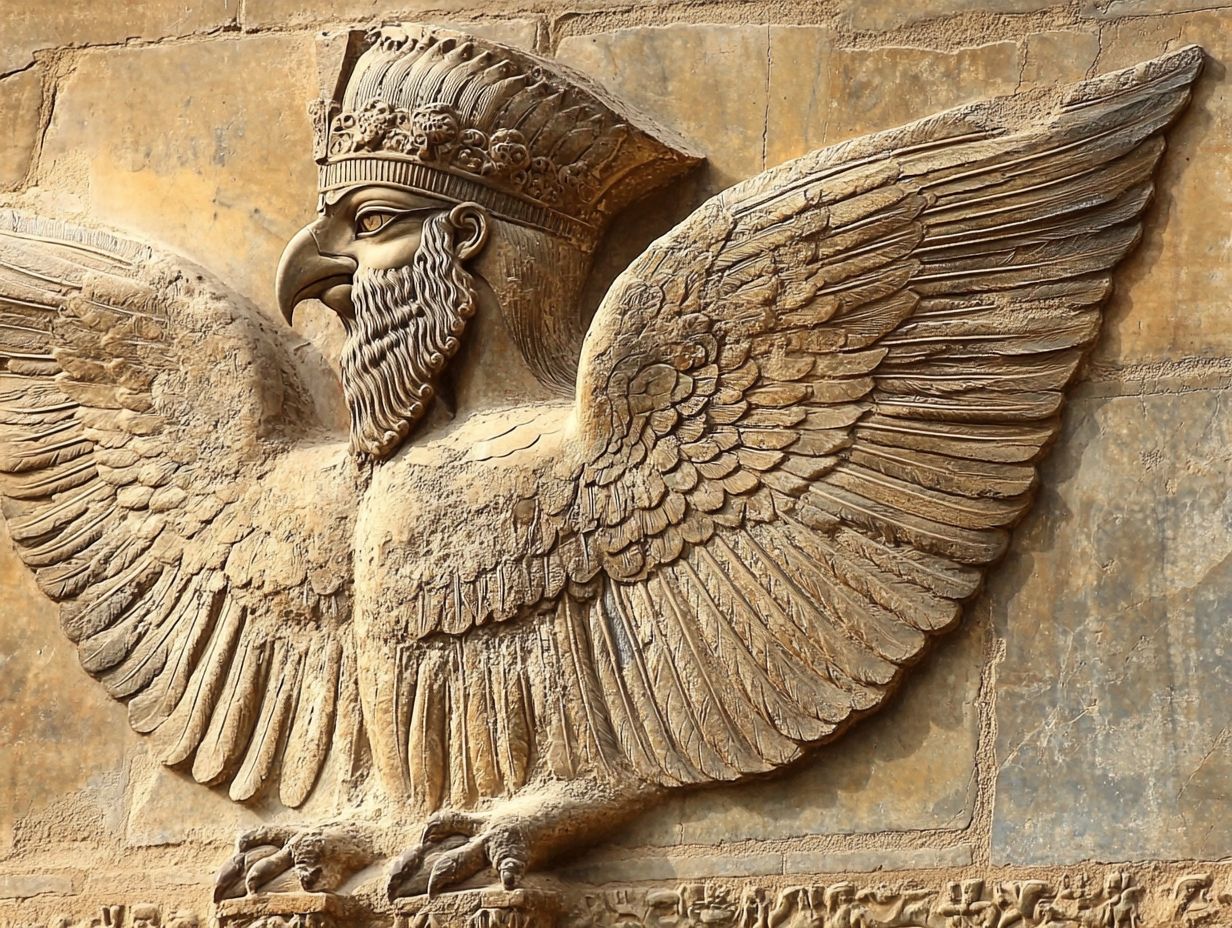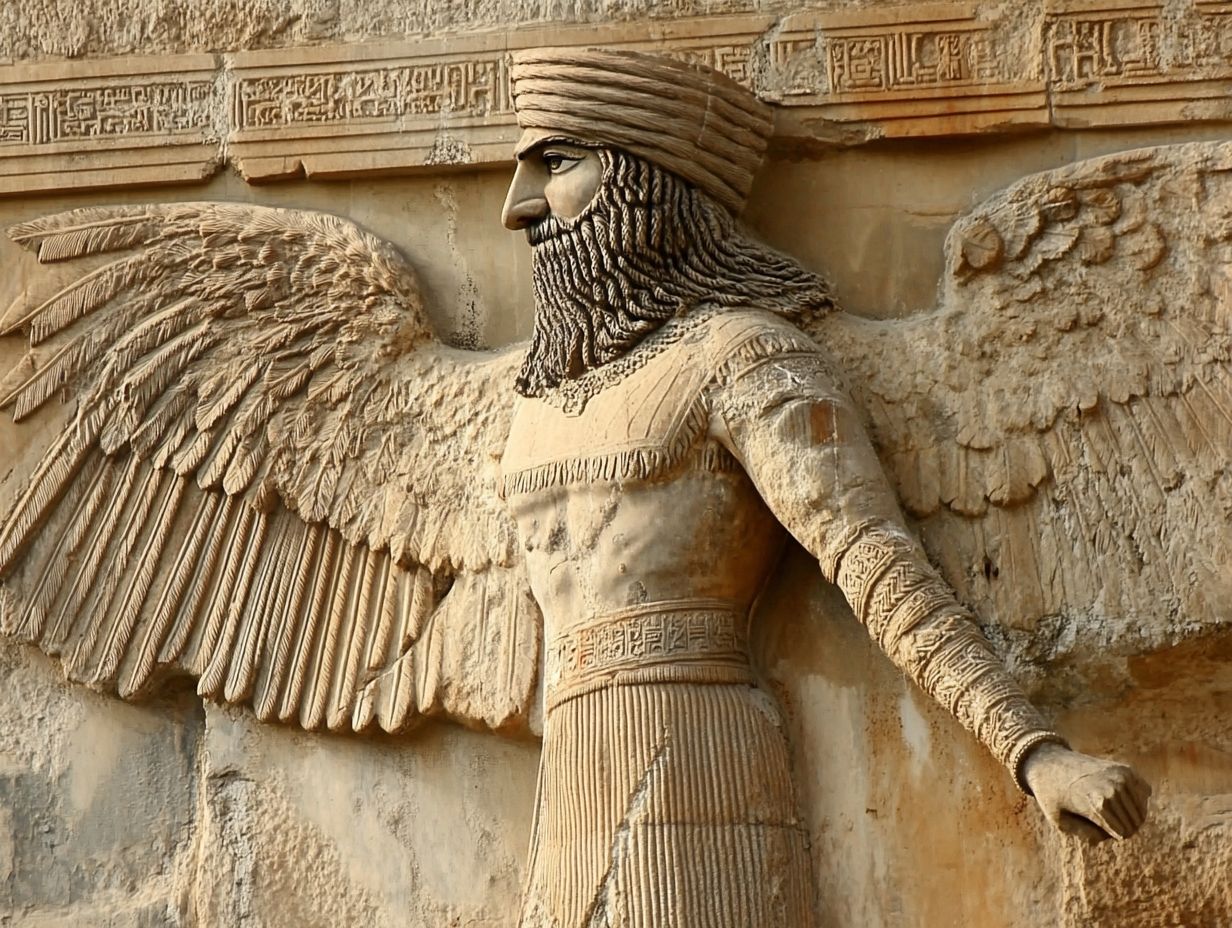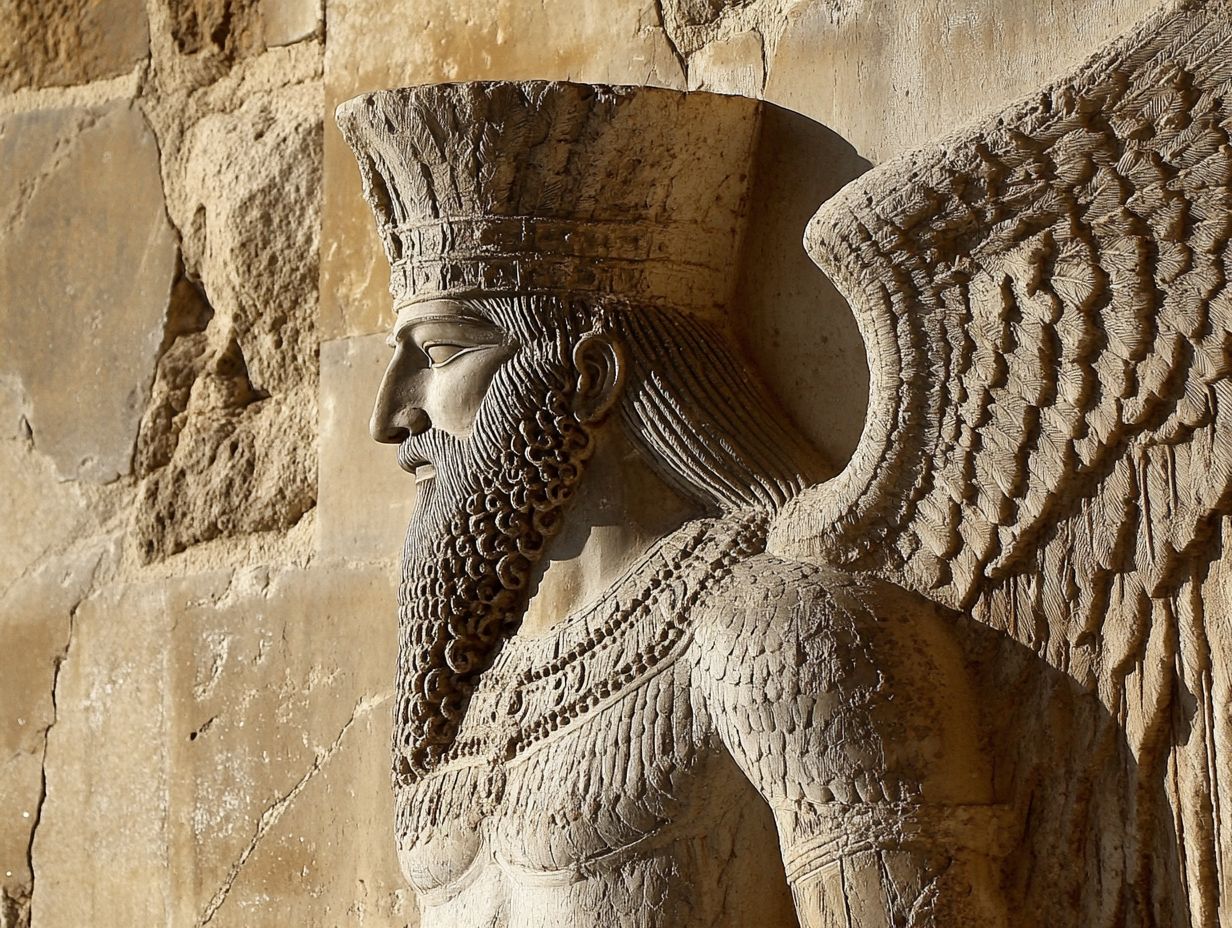How Are Zoroastrianism and Judaism Different From Hinduism?
Zoroastrianism, Judaism, and Hinduism stand as three ancient religions, each boasting a rich tapestry of history and unique beliefs that have profoundly influenced the worldviews of their adherents. This exploration delves into their foundational tenets, diverse concepts of God, revered sacred texts, significant rituals, and creation stories, while also considering their distinct perspectives on the afterlife and karma.
The article will illuminate key differences between these faiths and others like Hinduism, providing a deeper understanding of how they diverge in beliefs and practices such as polytheism and monotheism. Readers will uncover the intriguing similarities and contrasts that characterize Zoroastrianism and Judaism, all within the context of a world frequently shaped by various other spiritual traditions and belief systems.
What Are the Basic Beliefs of Zoroastrianism and Judaism?

Zoroastrianism and Judaism stand as two of the world’s most ancient religions, each characterized by unique beliefs that profoundly influence their adherents’ perceptions of God, the cosmos, and divine beings.
Zoroastrianism, established by the prophet Zoroaster, underscores the dualistic nature of good and evil, with the supreme deity Ahura Mazda embodying goodness, truth, and moral integrity. It also emphasizes the importance of fire worship, which symbolizes purity and the divine presence.
In contrast, Judaism, deeply rooted in the teachings of the Torah, champions monotheism and promotes a robust ethical framework through its commandments and moral directives. It also values the significance of religious law and social justice.
Together, these faiths weave a rich tapestry of human spirituality and ethical principles, diving into the profound questions surrounding existence, community, divine justice, and eschatology.
What Are the Main Tenets of Zoroastrianism?
The fundamental principles of Zoroastrianism center around the veneration of Ahura Mazda, the supreme deity symbolizing truth and goodness, and the practice of fire worship, which signifies purity and the divine presence. This ancient religion is distinguished by its ethical teachings that highlight the stark contrast between good and evil, guiding practitioners in their daily lives and spiritual endeavors.
Concepts such as dualism, karma, and the significance of community gatherings are essential to the Zoroastrian perspective, influencing their spiritual outlook and moral challenges. Additionally, sacred spaces and pilgrimages play a crucial role in their religious practices.
In the Zoroastrian faith, fire transcends its physical properties; it embodies the light of knowledge and the presence of Ahura Mazda, establishing its worship as a fundamental aspect of religious expression. Adherents participate in rituals and prayers that pay homage to both the sacred fire and the teachings of the prophet Zoroaster, who underscored the moral duty of individuals to embrace righteousness over deception. This ethical framework is not merely abstract; it is reflected in everyday actions characterized by charity, honesty, and an unwavering commitment to truth.
The community serves a crucial role, promoting unity and a shared sense of purpose among followers who come together for rituals, celebrations, and communal worship. This includes the observance of festivals and traditions that reinforce their faith. This collective gathering reinforces the belief that, united, they can confront chaos and uphold order in a world defined by duality.
What Are the Core Beliefs of Judaism?
Judaism is grounded in a rich tapestry of core beliefs that center on the oneness of God, the ethical teachings embedded in the Torah, and the profound significance of religious law, which serves as a guiding compass for the moral conduct of its adherents. With a pronounced emphasis on community and the importance of rituals and festivals, the Jewish faith manifests through practices that actively promote social justice, charity, and the relentless pursuit of righteousness.
The teachings imparted by spiritual leaders, alongside the observance of commandments, form the bedrock of Jewish identity, providing a framework for comprehending divine justice, human responsibility, and religious authority.
At its essence, the Jewish tradition encourages followers to engage deeply with sacred texts, viewing the Torah not merely as a historical narrative but as a living document that significantly shapes daily life and ethical decision-making. The moral teachings articulated within the Torah underscore the values of compassion, honesty, and justice, compelling adherents to act in ways that reflect these fundamental principles.
Community practices, including the observance of the Sabbath and the celebration of festivals such as Passover, foster a robust sense of belonging and continuity, reminding individuals of their collective heritage and shared responsibilities. Through daily prayers, meditations, and acts of kindness, the faith inspires individuals to live ethically and contribute positively to society, enriching both personal lives and the broader community.
How Do Zoroastrianism and Judaism View God?
The perspectives on God in Zoroastrianism and Judaism reveal a tapestry of both similarities and differences that underscore their distinct theological frameworks.
In Zoroastrianism, God is personified by Ahura Mazda, who epitomizes all that is good and engages in an ongoing struggle against the forces of evil, effectively illustrating the dualistic essence of this ancient faith.
In stark contrast, Judaism embraces a strict monotheism, underscoring the singularity of God within the context of a covenantal relationship with the Jewish people.
This examination of divine representations illuminates how both religions grapple with intricate questions surrounding existence, morality, and spiritual identity.
What Is the Concept of God in Zoroastrianism?
In Zoroastrianism, the notion of God is intricately woven around Ahura Mazda, the omnipotent creator who symbolizes goodness and truth. This formidable deity serves as a guiding light for ethical teachings and moral conduct within the faith. Zoroastrianism presents a dualistic worldview, recognizing the perpetual struggle between Ahura Mazda and the forces of evil, personified by Angra Mainyu, the embodiment of destruction. This dynamic interplay not only shapes the Zoroastrian understanding of the divine but also influences their spiritual practices and communal values.
Ahura Mazda epitomizes wisdom, righteousness, and the relentless battle against chaos, inspiring adherents to channel their efforts towards a life marked by virtue and conscious awareness in their daily interactions. The dualistic essence of Zoroastrianism underscores the significance of individual choice, compelling followers to engage in continuous self-reflection and moral deliberation.
By emphasizing core principles such as truth (Asha) and righteousness, this ancient faith directs its adherents toward an ethical path that nurtures harmony both within themselves and in their communities. Such teachings foster a profound commitment to promoting good thoughts, words, and deeds, illustrating the significant impact these ideals have on their spiritual journey and collective identity.
What Is the Concept of God in Judaism?
The concept of God in Judaism embodies a profound monotheism, where God is recognized as the singular, omnipotent creator who forges a covenant with His chosen people. This divine relationship serves as the cornerstone of Jewish religious identity and shapes the ethical conduct expected from believers, as outlined in the teachings of the Torah. This relationship also emphasizes the importance of prophecy and divine revelation.
The emphasis on God’s justice, mercy, and guidance cultivates the moral framework that informs how Jews navigate their spiritual and communal lives.
Through this covenant, the Jewish people bear the responsibility of upholding God’s laws and values, thus nurturing a strong sense of community and ethical accountability. This relationship transcends mere ceremonial observance; it calls for active engagement with the principles of justice, compassion, and humility.
As a result, adherence to these principles profoundly impacts both personal behavior and societal interactions, fostering a collective pursuit of righteousness.
Understanding God’s nature as one who transcends yet intimately connects with His people deepens the commitment to live a life that reflects these divine attributes.
What Are the Main Texts of Zoroastrianism and Judaism?

The primary texts of Zoroastrianism and Judaism function as foundational scriptures, encapsulating the teachings, rituals, and ethical guidelines that are central to each faith.
Zoroastrianism draws upon the Avesta, a comprehensive collection of sacred writings that includes the Gathas hymns attributed to Zoroaster. In contrast, Judaism is anchored in the Torah, which delineates the laws and commandments essential to Jewish life. Additionally, both religions have rich traditions of mythology and religious texts that inform their practices and beliefs.
These revered texts offer profound insights into the beliefs and practices of their respective religions while also reflecting the rich spiritual and cultural heritage of both communities.
What Are the Sacred Texts of Zoroastrianism?
The sacred texts of Zoroastrianism, primarily the Avesta, encompass a rich and diverse collection of religious writings that articulate the beliefs and practices of this ancient faith. Within these texts, the Gathas stand out as particularly significant, as they are traditionally believed to have been composed by Zoroaster himself. These hymns offer profound insights into moral teachings and the essence of divinity. This intricate tapestry of scriptures not only guides Zoroastrians in their rituals and ethical conduct but also preserves the spiritual heritage of a vibrant religious community. Similar to the Torah in Judaism and the Vedas in Hinduism, these texts hold immense cultural and religious significance.
The Avesta is meticulously divided into several sections, each contributing uniquely to Zoroastrian theology, liturgy, mythology, and cosmology.
Within this framework, the Gathas consist of 17 revered hymns, celebrated for their poetic structure and philosophical depth, serving as a moral compass for their followers. In comparison, the Torah and the Vedas also offer substantial ethical and spiritual guidance within their respective belief systems.
These texts delve into essential themes such as truth, righteousness, and the eternal struggle between good and evil, reflecting the core tenets of Zoroastrianism, a religion characterized by its dualism and the worship of Ahura Mazda.
The teachings embedded in the Gathas inspire adherents to actively pursue virtues and cultivate a harmonious relationship with both the divine and the natural world, reinforcing the faith s unwavering commitment to ethical living and spiritual growth.
What Are the Sacred Texts of Judaism?
Judaism’s sacred texts encompass the Torah, which stands as the cornerstone of Jewish religious life, providing essential laws, teachings, and narratives fundamental to the faith. The Talmud serves as a vital companion, elaborating on the laws of the Torah and offering interpretations that guide ethical and moral conduct. These texts are similar in their role to the Avesta in Zoroastrianism and the Vedas in Hinduism.
These scriptures not only encapsulate the religious laws and practices of Judaism but also embody the historical context and cultural heritage that shape Jewish identity.
The significance of these texts transcends individual belief, forming the foundation of communal life and practice. Observant Jews engage in regular study of the Torah and Talmud, immersing themselves in their teachings within synagogues and study groups. This engagement fosters a profound understanding of moral dilemmas and social justice. The dialogues found within the Talmud promote debates and diverse viewpoints, reflecting the dynamic nature of Jewish thought.
Together, these foundational texts give the power to adherents to navigate contemporary challenges while remaining anchored in their ancient traditions, thus sustaining a vibrant spiritual community for generations to come.
What Are the Main Practices and Rituals in Zoroastrianism, Judaism, and Hinduism?
The principal practices and rituals in Zoroastrianism and Judaism encapsulate the spiritual essence and communal identity of their adherents, illuminating their respective beliefs, ethical teachings, and moral codes.
Zoroastrianism places a strong emphasis on fire worship, purity rites, and community gatherings, which not only represent acts of devotion to Ahura Mazda but also strengthen the bonds within the community. Similarly, Hinduism has rituals revolving around fire worship and offerings to their divine beings.
Conversely, Jewish practices revolve around the observance of commandments, rituals, and festivals that nurture religious identity and cultivate a sense of community spirit. This is similar to the religious practices in Hinduism, where rituals and festivals play a crucial role in maintaining spiritual and communal harmony.
These distinct approaches reveal the varied ways each tradition engages with the divine and the ethical implications inherent in their beliefs.
What Are the Main Practices in Zoroastrianism?
In Zoroastrianism, the central practices encompass a rich tapestry of rituals designed to honor Ahura Mazda and foster purity within the community. This includes not only fire worship but also other religious practices that are integral to maintaining spiritual purity.
At the heart of these practices lies the veneration of fire, revered as a potent symbol of divine presence. Fire plays a pivotal role in various ceremonies and observances. Purification rites, communal gatherings, and the celebration of significant festivals further reinforce the ethical teachings and spiritual values that guide Zoroastrians in their everyday lives.
Within these vibrant traditions, fire transcends its physical form, becoming intricately woven into the spiritual identity and practices of the community. The flames within fire temples are meticulously nurtured, representing the eternal light of truth and righteousness that illuminates the faithful’s journey.
Purification rituals are of paramount importance, meticulously crafted to cleanse both body and soul, ensuring that individuals interact with one another and the divine in a manner that upholds their values of order and morality. This unwavering commitment to purity extends beyond the individual, encompassing communal engagements where gatherings foster unity and reinforce the collective aspiration for a just and harmonious life, fully embodying the essence of Zoroastrian ethical living.
What Are the Main Rituals in Judaism?
Judaism’s primary rituals are intricately woven into the fabric of its commandments and the essential nature of communal life, significantly shaping the spiritual journey of its adherents. These rituals often include prayer and meditation, which are also key elements in Hindu practices.
Among the key practices is prayer, which serves as a direct conduit to the divine, and the observance of festivals that commemorate pivotal historical events while fostering a robust sense of community. These rituals not only reinforce Jewish identity but also embody the ethical teachings and moral obligations that guide behavior within the faith.
Beyond the daily prayers known as tefillah, communal gatherings during Shabbat and significant festivals such as Passover and Yom Kippur deepen the bonds among community members, facilitating shared experiences and collective growth. The observance of commandments, or mitzvot, plays a crucial role, connecting individuals to their heritage and to the divine.
For instance, the act of lighting the menorah during Hanukkah serves as a poignant reminder of spirituality, resilience, and the miracles throughout Jewish history. Collectively, these communal and individual acts nurture a profound sense of belonging and responsibility, ensuring that the rich traditions and enduring values of Judaism are passed down through generations.
How Do Zoroastrianism and Judaism View the Afterlife?

The perspectives on the afterlife in Zoroastrianism and Judaism illustrate a rich tapestry of distinct beliefs regarding reincarnation, salvation, and the moral frameworks that guide adherents in their earthly existence. Hinduism, another ancient religion, also shares intriguing perspectives on reincarnation and karma, which significantly influence their outlook on the afterlife.
Zoroastrianism presents a dualistic cosmology, wherein the soul undergoes judgment post-mortem, influencing its destiny in the afterlife. This judgment may lead to reincarnation or eternal damnation, contingent upon one’s moral conduct.
Conversely, Judaism places a strong emphasis on the necessity of living a righteous life to secure a favorable afterlife, highlighting the crucial roles of faith, ethical behavior, and communal responsibility in shaping one’s spiritual legacy.
What Is the Concept of Afterlife in Zoroastrianism?
In Zoroastrianism, the afterlife concept is deeply entwined with the faith’s dualistic nature, whereby the soul undergoes judgment post-death based on its earthly actions. This dualism is a distinguishing feature of Zoroastrian cosmology and mythology.
This judgment ultimately determines the soul’s destiny, which may lead to eternal paradise or punishment, embodying the moral teachings of Zoroaster.
The notion of reincarnation also figures prominently in Zoroastrian thought, positing that the soul might return to the physical realm to further its spiritual journey toward enlightenment.
The assessment of one s deeds transcends mere punishment; it serves as a profound reflection of how individual choices shape one s essence. Each person’s life decisions carry significant weight, influencing not only their immediate fate but also their potential in future existences.
In this intricate tapestry of existence, the repercussions of actions extend beyond the individual, impacting the collective spiritual environment. Thus, the embrace of virtues such as honesty, charity, and respect takes on vital importance, as these principles navigate one’s journey through both judgment and reincarnation.
This framework offers a moral compass for adherents, promoting a lifestyle that aligns with Zoroastrian principles while skillfully maneuvering through the complexities of life.
What Is the Concept of Afterlife in Judaism?
Judaism offers a nuanced understanding of the afterlife, highlighting the significance of living a righteous life aligned with God’s commandments as the pathway to salvation. This echoes similar themes in other monotheistic religions, including Zoroastrianism and aspects of Hinduism, where ethical conduct greatly influences one’s spiritual destination.
Although Jewish texts provide fewer specifics about the afterlife than some other religious traditions, the teachings of spiritual leaders consistently emphasize the importance of ethical conduct and communal responsibility in determining one’s fate beyond this life.
Concepts such as Olam Ha-Ba (the World to Come) encapsulate the Jewish vision of the afterlife, reflecting their moral teachings and the overarching pursuit of spiritual fulfillment.
This distinctive perspective encourages individuals to find fulfillment through acts of kindness, justice, and mercy, reinforcing the belief that one’s actions in this life have a direct impact on their spiritual destination. The concept of Gehinnom, often misconstrued as mere punishment, is interpreted within Jewish thought more as a corrective experience, guiding souls toward redemption and personal growth.
Such interpretations underscore the critical role of repentance (Teshuvah) and moral development, helping withdividuals in navigating life’s challenges while preparing for what lies beyond. Ultimately, the afterlife in Judaism serves as both a catalyst for ethical behavior and a beacon of hope for ongoing spiritual evolution.
What Are the Main Differences Between Hinduism and Zoroastrianism/Judaism?
The distinctions among Hinduism, Zoroastrianism, and Judaism illuminate the rich tapestry of religious beliefs and practices that characterized ancient religions, particularly in relation to concepts such as polytheism, reincarnation, monotheism, and ethical teachings.
Hinduism, with its polytheistic framework and elaborate mythology, places significant emphasis on the cycle of rebirth (samsara) and the principles of karma. This stands in stark contrast to the monotheistic foundations that underpin both Zoroastrianism and Judaism, which worship Ahura Mazda and Yahweh respectively.
By diving into these differences, one not only uncovers the unique attributes of each faith but also fosters a deeper interfaith dialogue and mutual understanding, promoting religious tolerance and appreciation of cultural influences.
What Are the Core Beliefs of Hinduism?
The core beliefs of Hinduism weave a rich tapestry of spiritual and philosophical concepts, encompassing polytheism, karma, dharma, and the cycle of reincarnation, which profoundly shape the lives of its followers. At the heart of Hindu thought lies the belief in a multitude of divine beings, such as Brahman, and the critical importance of ethical conduct in achieving a harmonious existence.
Adherents are guided by revered spiritual leaders and ancient texts like the Vedas, which outline the moral and ethical frameworks essential for navigating the complexities of life and addressing existential questions.
Within this framework, karma assumes a pivotal role, highlighting how the actions individuals take directly impact their present and future circumstances. This principle instills a sense of accountability and encourages a lifestyle grounded in virtuous living and ethical systems.
Dharma, on the other hand, serves as a vital guideline that delineates one s responsibilities based on social roles and personal circumstances, emphasizing the significance of duty and righteousness, akin to other belief systems.
The interplay of these beliefs not only enriches the spiritual journey of followers but also fosters a community where the divine is continually revered through rituals, festivals, and everyday practices, cultivating a profound connection to both the cosmos and one another. These aspects are deeply influenced by the mythology and symbols inherent to the religion.
How Do Hinduism and Zoroastrianism/Judaism Differ in Their Beliefs?
Hinduism, Zoroastrianism, and Judaism present a fascinating array of spiritual beliefs and ethical teachings, each shaped by its distinct historical and cultural backdrop. Hinduism embraces a polytheistic framework, emphasizing concepts such as karma and reincarnation, while Zoroastrianism offers a dualistic perspective centered on the veneration of Ahura Mazda. In contrast, Judaism underscores monotheism and derives its ethical principles from the Torah, contributing to a rich and varied landscape of religious practices and beliefs that encapsulate the intricate nature of human spirituality, including the focus on prophets and divine revelation.
These differences are evident not only in the deities and cosmologies that followers revere but also in the ethical systems that guide their daily lives. For instance, Hindu ethics often center around the concept of dharma, highlighting the significance of righteous living in accordance with one s societal role. Meanwhile, Zoroastrianism advocates the importance of good thoughts, good words, and good deeds as fundamental to overcoming malevolent forces. Conversely, Judaism’s Ten Commandments provide a well-defined moral code designed to promote community cohesion and individual accountability, aligning with broader religious law and moral codes.
Collectively, these distinct spiritual frameworks weave a rich tapestry of faith and moral philosophy, shaping the diverse cultures and experiences that characterize the human condition.
Frequently Asked Questions

How are Zoroastrianism and Judaism different from Hinduism?
Zoroastrianism and Judaism are monotheistic religions, while Hinduism is polytheistic. This means that Zoroastrianism and Judaism believe in one supreme deity Ahura Mazda and Yahweh respectively while Hinduism believes in multiple gods and goddesses, including Brahman.
How do Zoroastrianism and Judaism view the afterlife compared to Hinduism?
Zoroastrianism and Judaism both have a belief in a single afterlife, where individuals are judged based on their actions in life. Hinduism, on the other hand, has a belief in reincarnation and the cycle of birth and death, deeply intertwined with the concepts of karma and samsara.
What is the role of rituals in Zoroastrianism and Judaism, as opposed to Hinduism?
In Zoroastrianism and Judaism, rituals are seen as important acts of devotion and obedience to God, often encompassing practices like fire worship and Sabbath. In Hinduism, rituals are a way to connect with the divine and can vary greatly depending on sect and region.
How do Zoroastrianism and Judaism differ from Hinduism in terms of religious texts?
Zoroastrianism and Judaism have specific holy scriptures that are considered authoritative, such as the Avesta and the Torah. Hinduism, on the other hand, has a vast collection of texts, including the Vedas, Upanishads, and Puranas, forming a comprehensive religious texts corpus.
What are the key beliefs of Zoroastrianism and Judaism that differentiate them from Hinduism?
Zoroastrianism and Judaism both have a strong emphasis on the concept of sin and the need for repentance. This is not a central belief in Hinduism, which places more emphasis on the cycle of karma and reincarnation, shaping its unique belief systems.
How do Zoroastrianism and Judaism approach the concept of salvation compared to Hinduism?
In Zoroastrianism and Judaism, salvation is seen as the ultimate goal of life, achieved through living a righteous and moral life, often guided by moral teachings and commandments. In Hinduism, salvation is achieved through breaking the cycle of reincarnation and merging with the divine, known as enlightenment.
